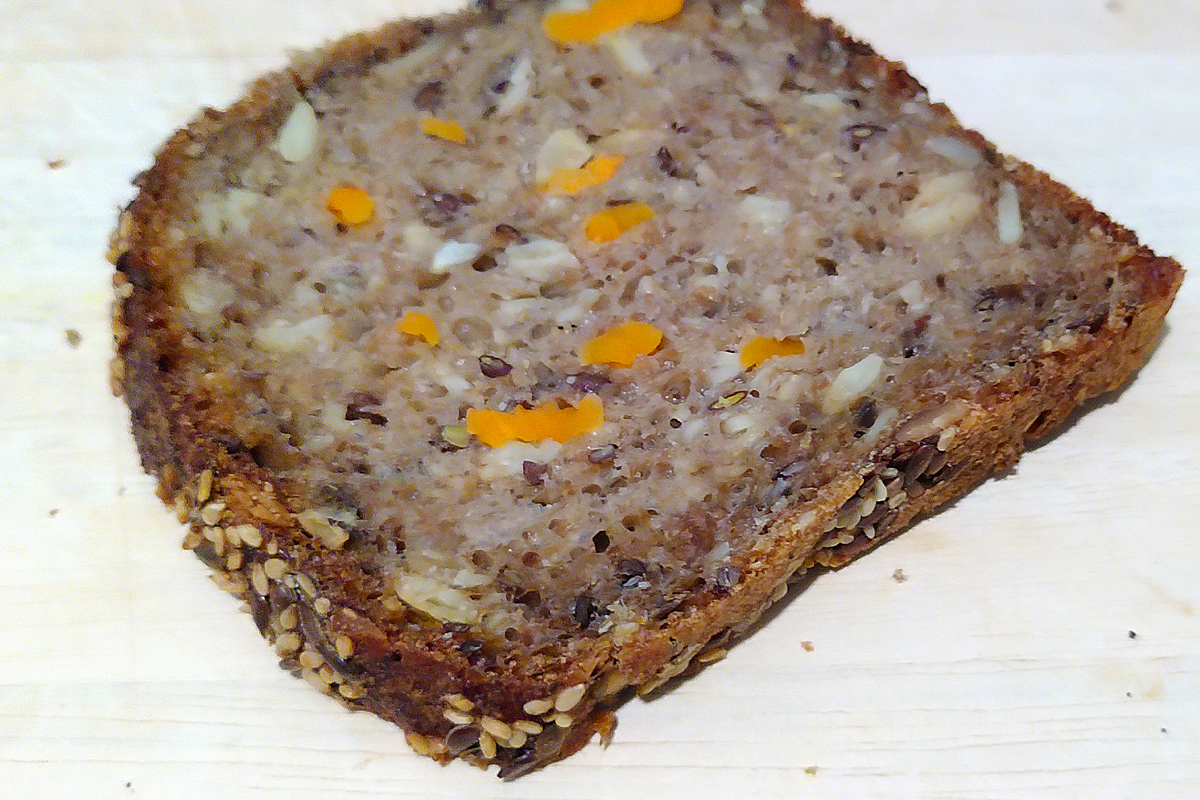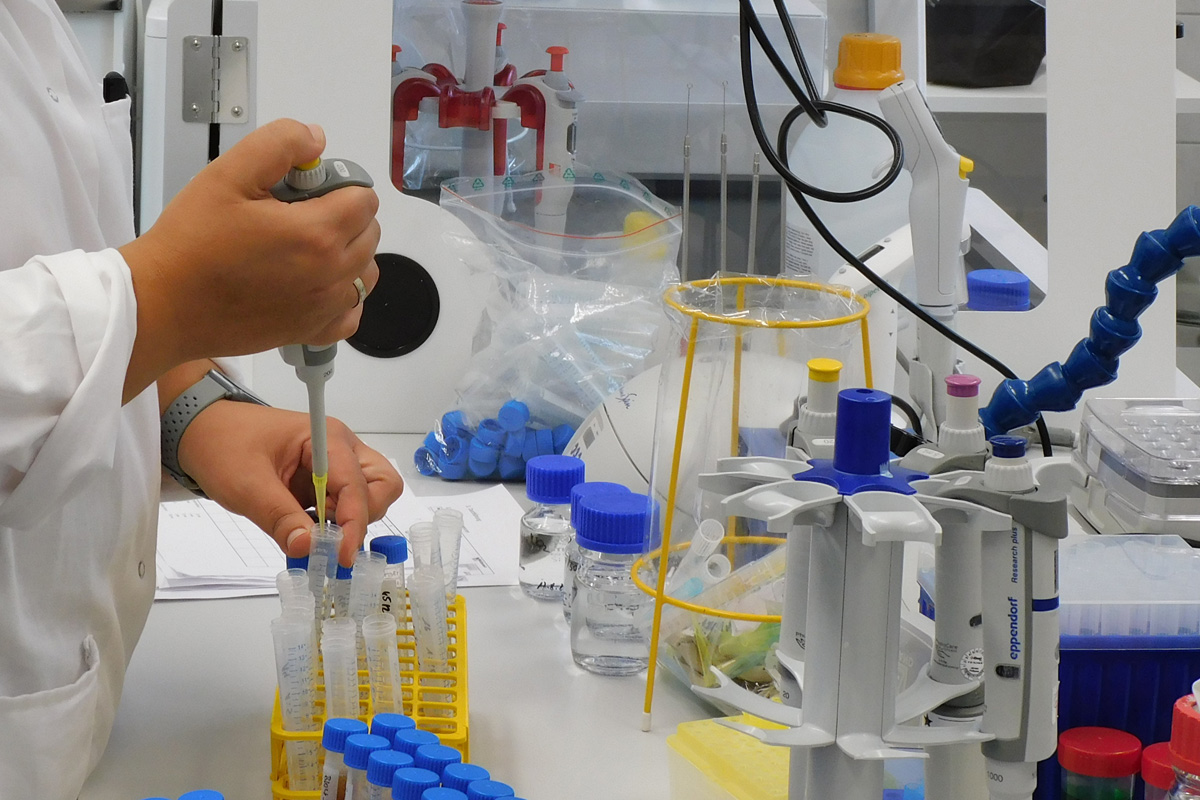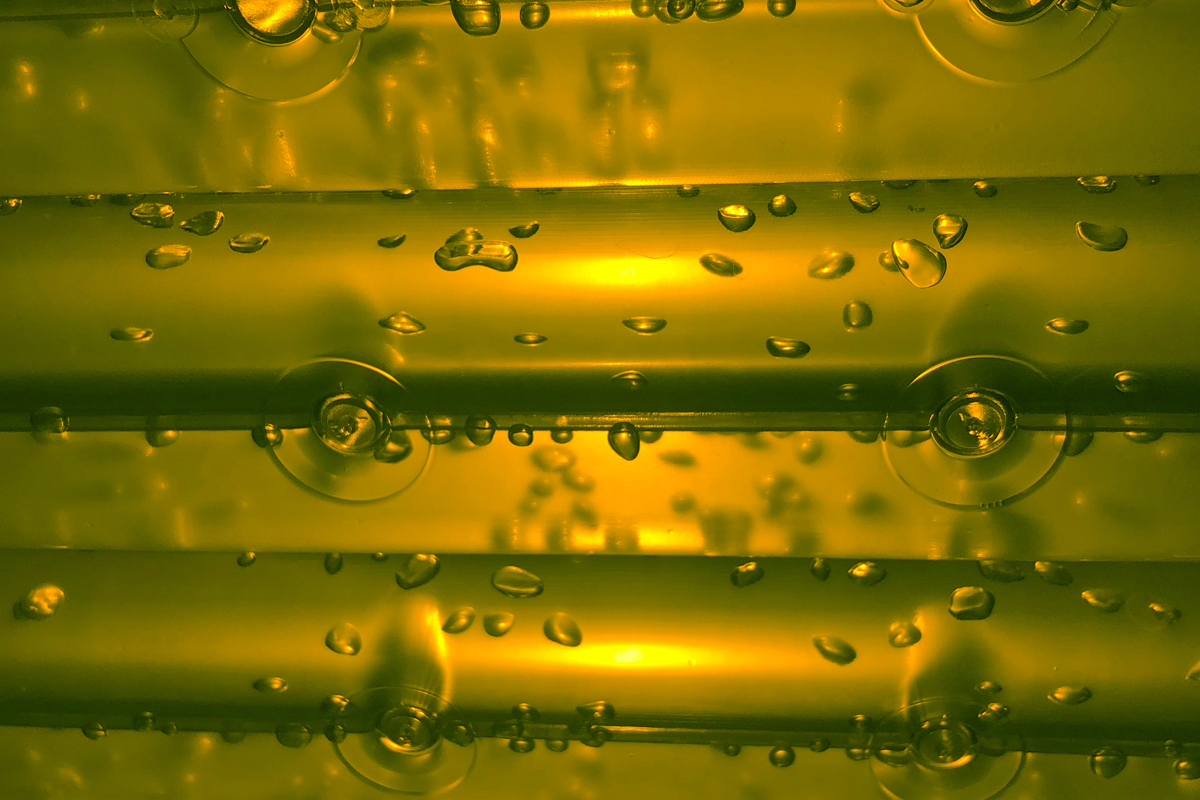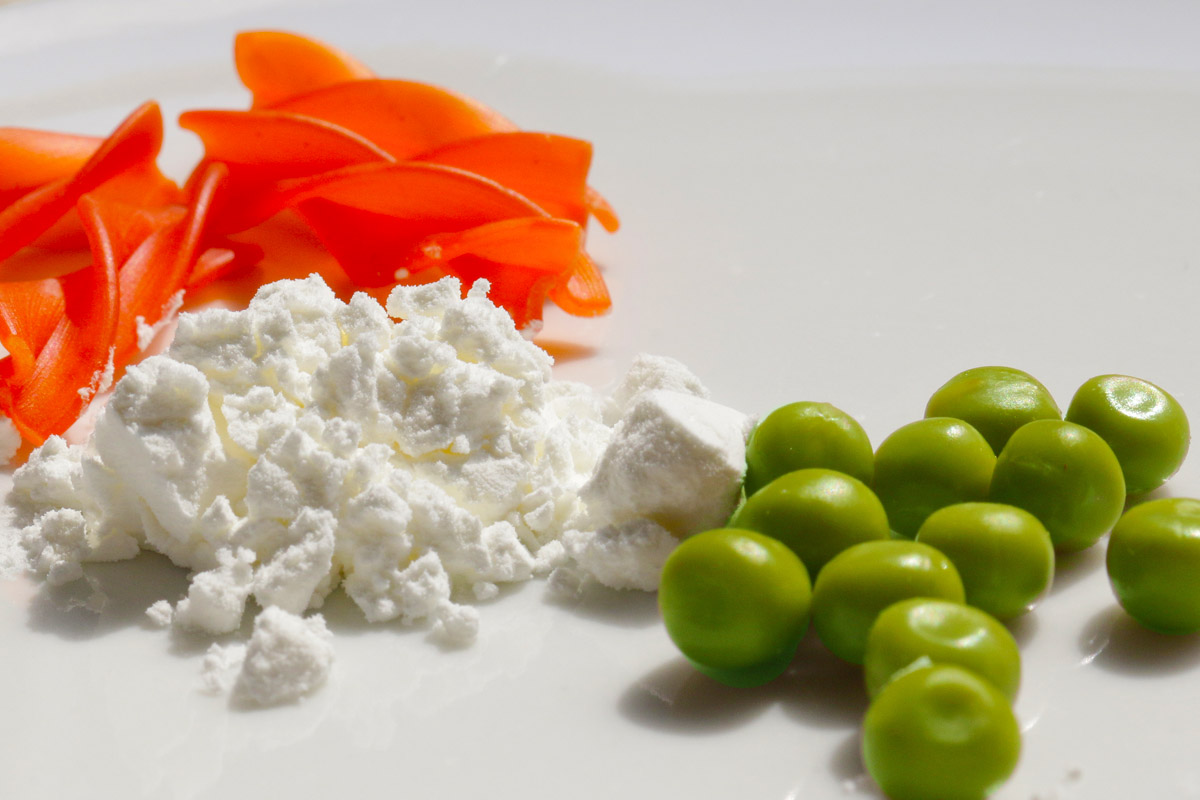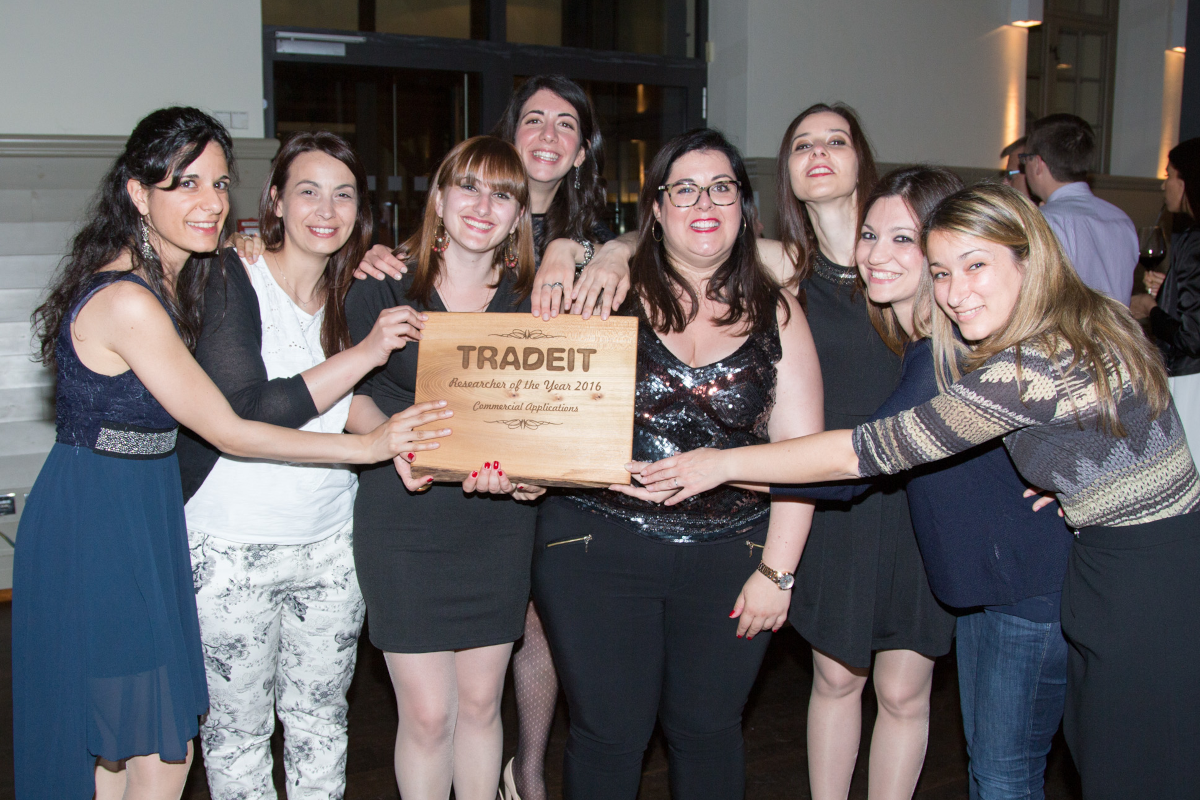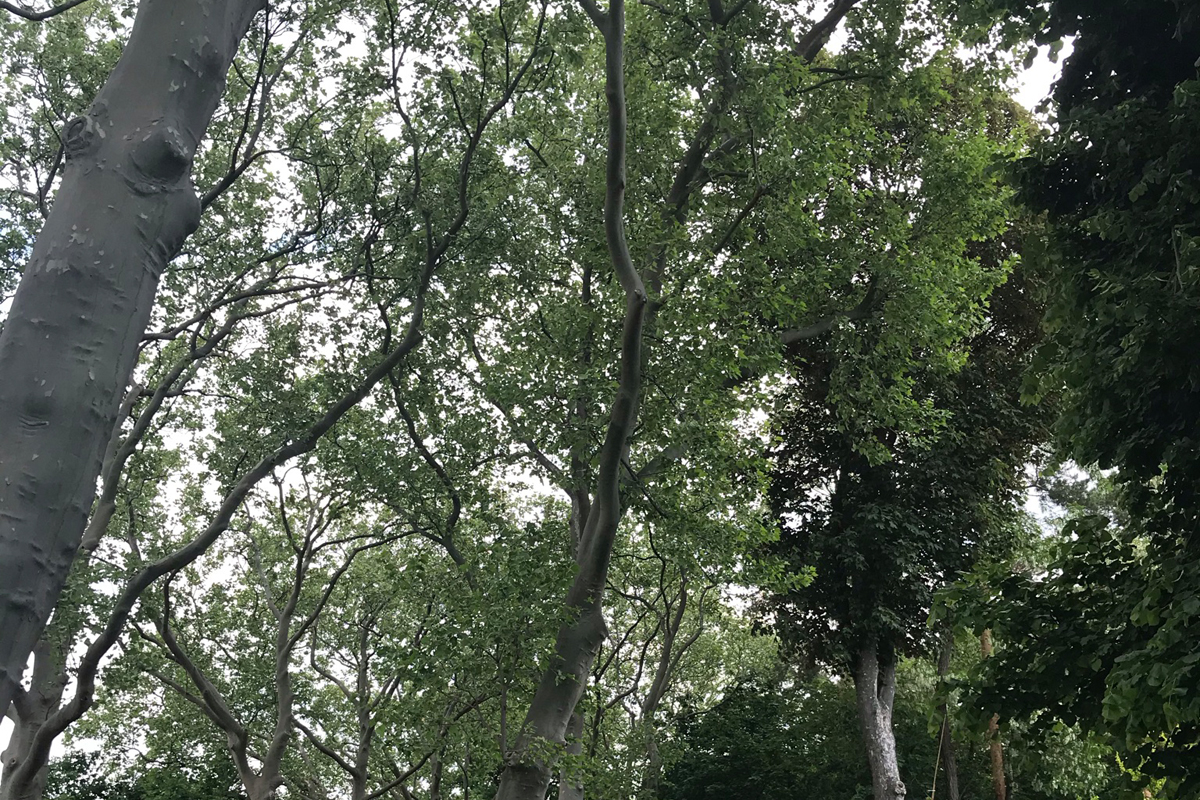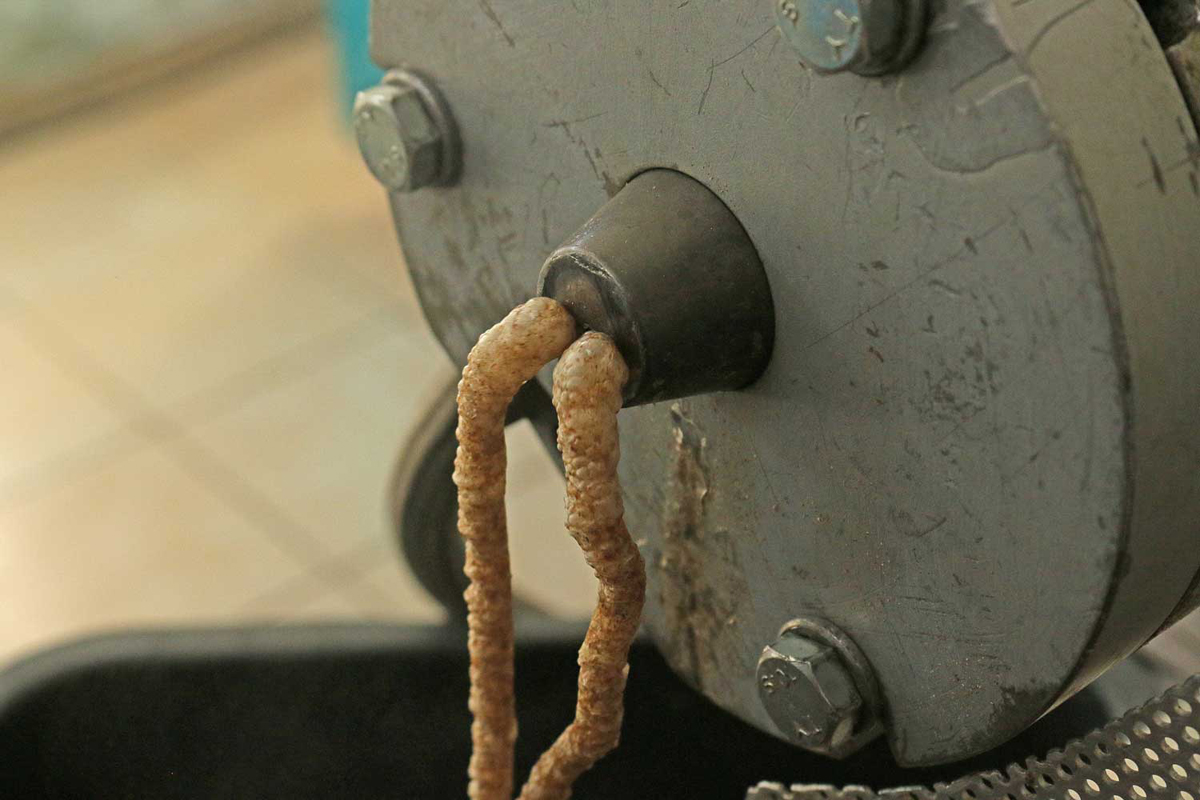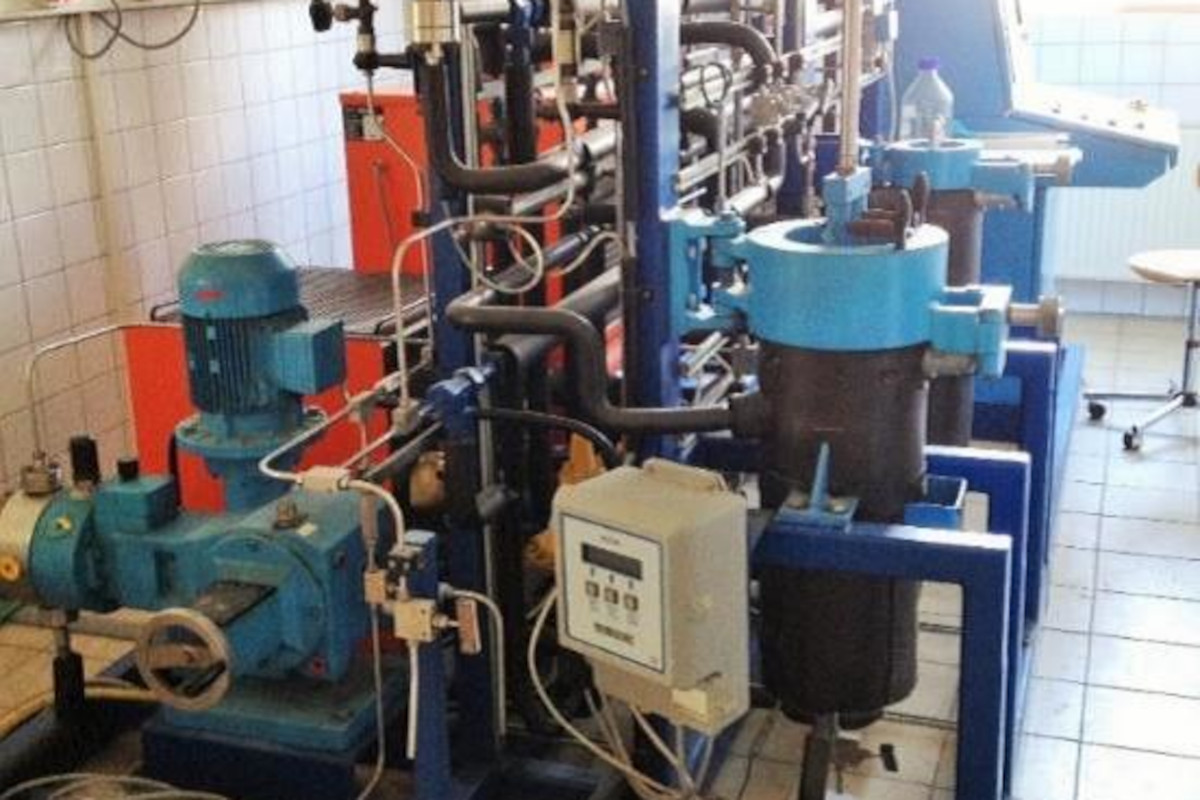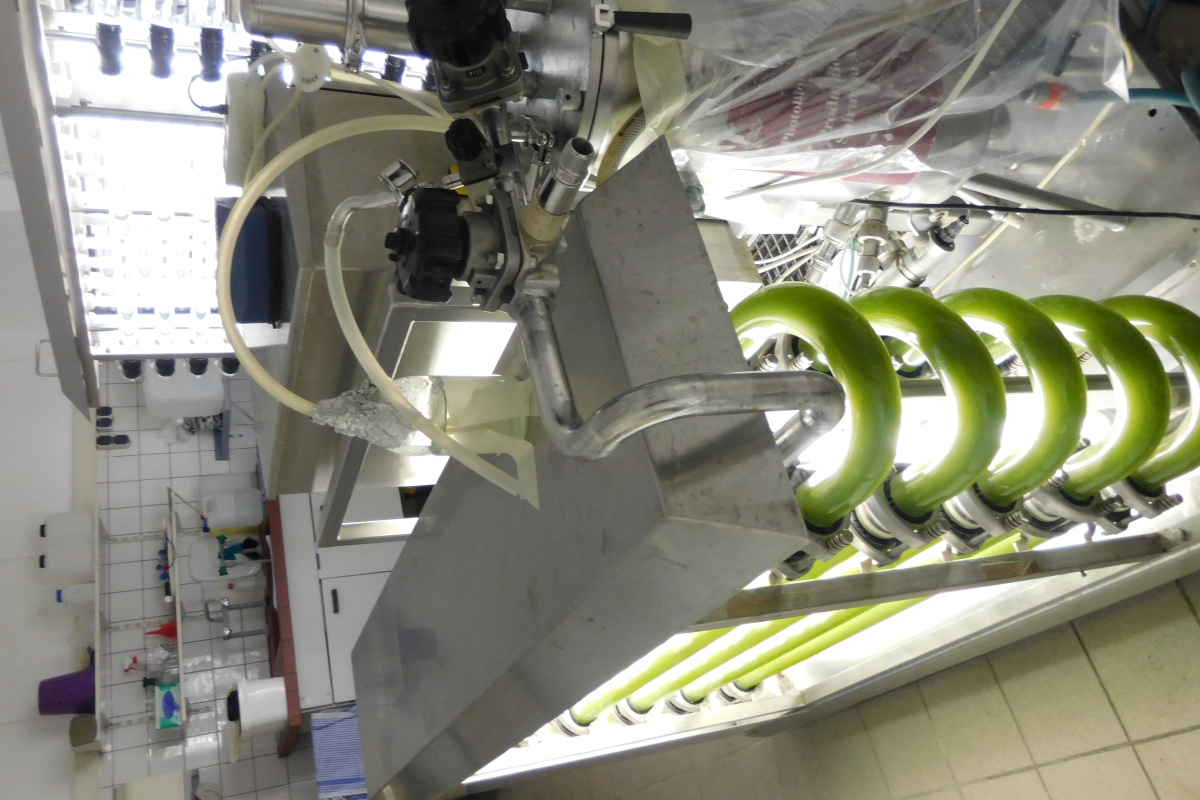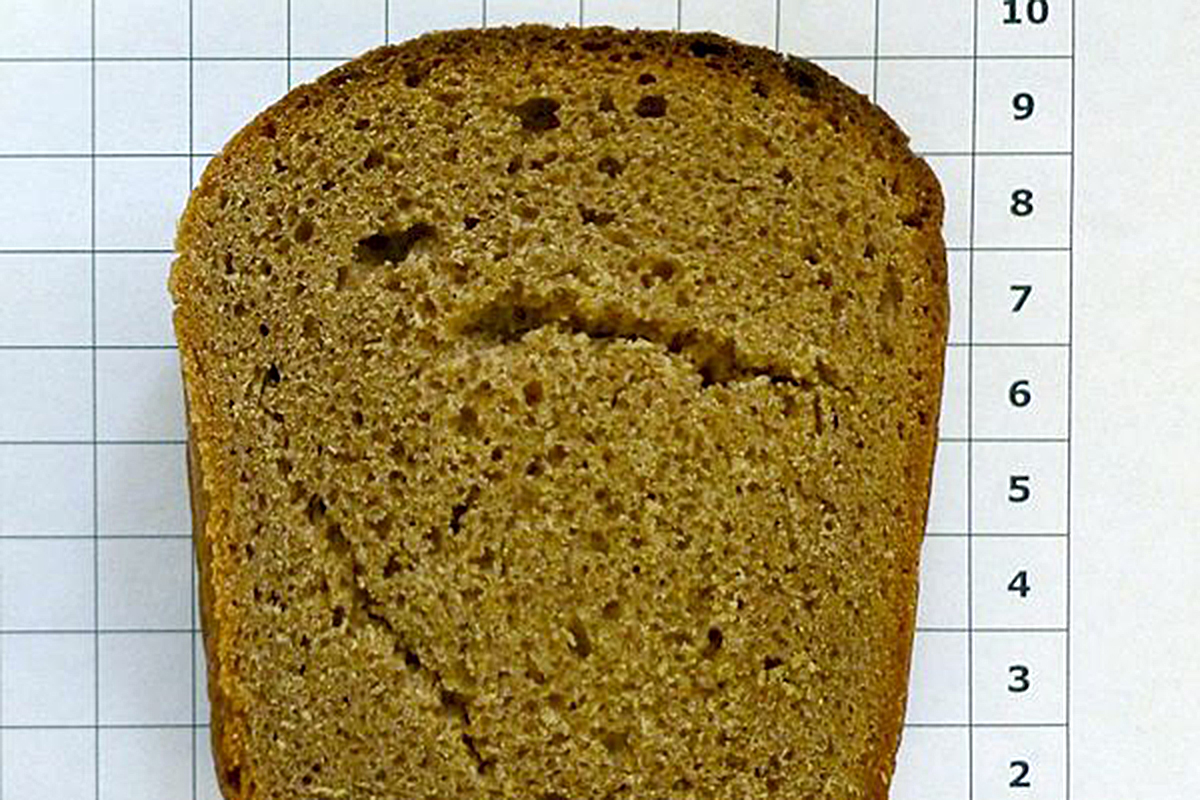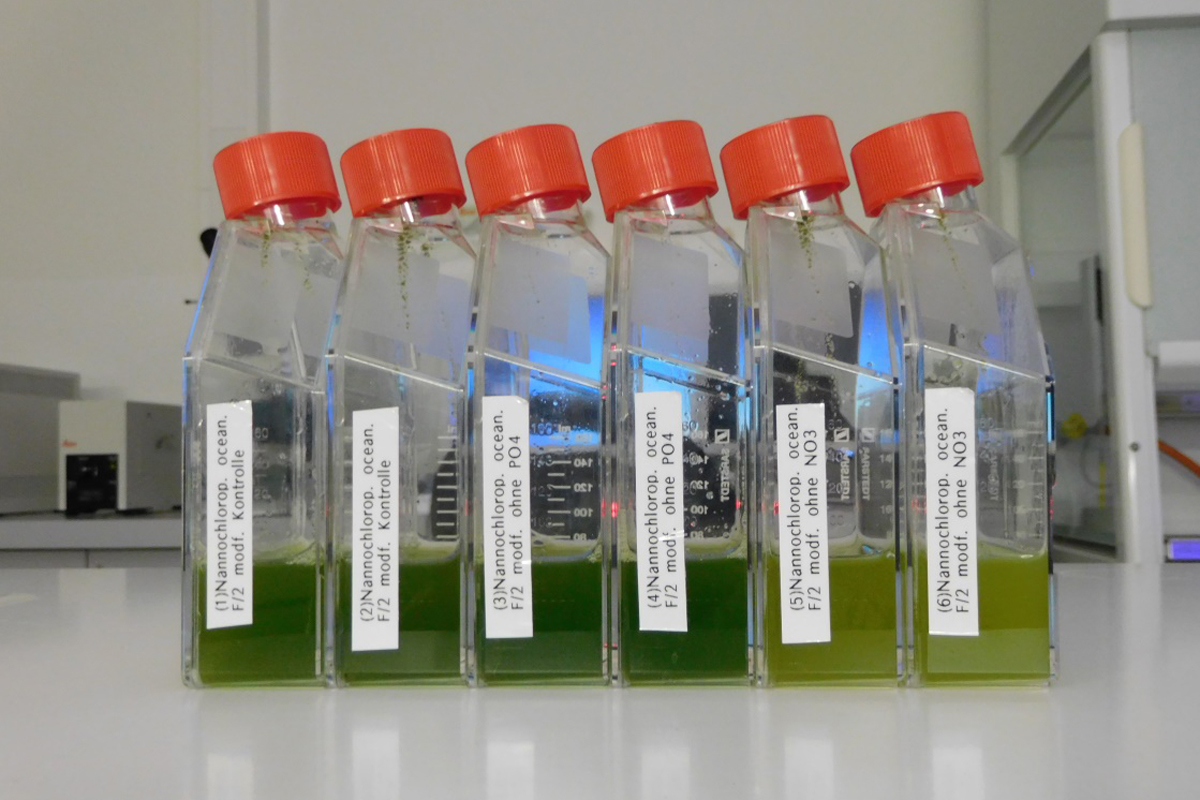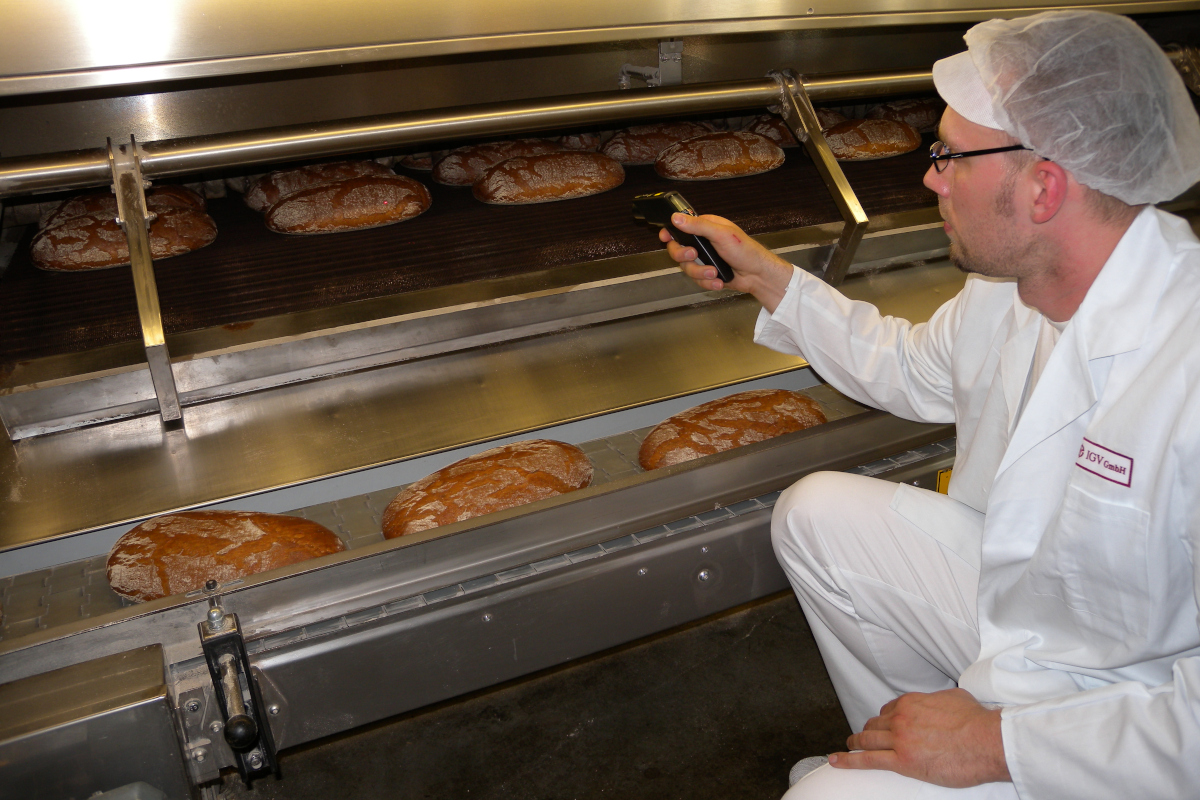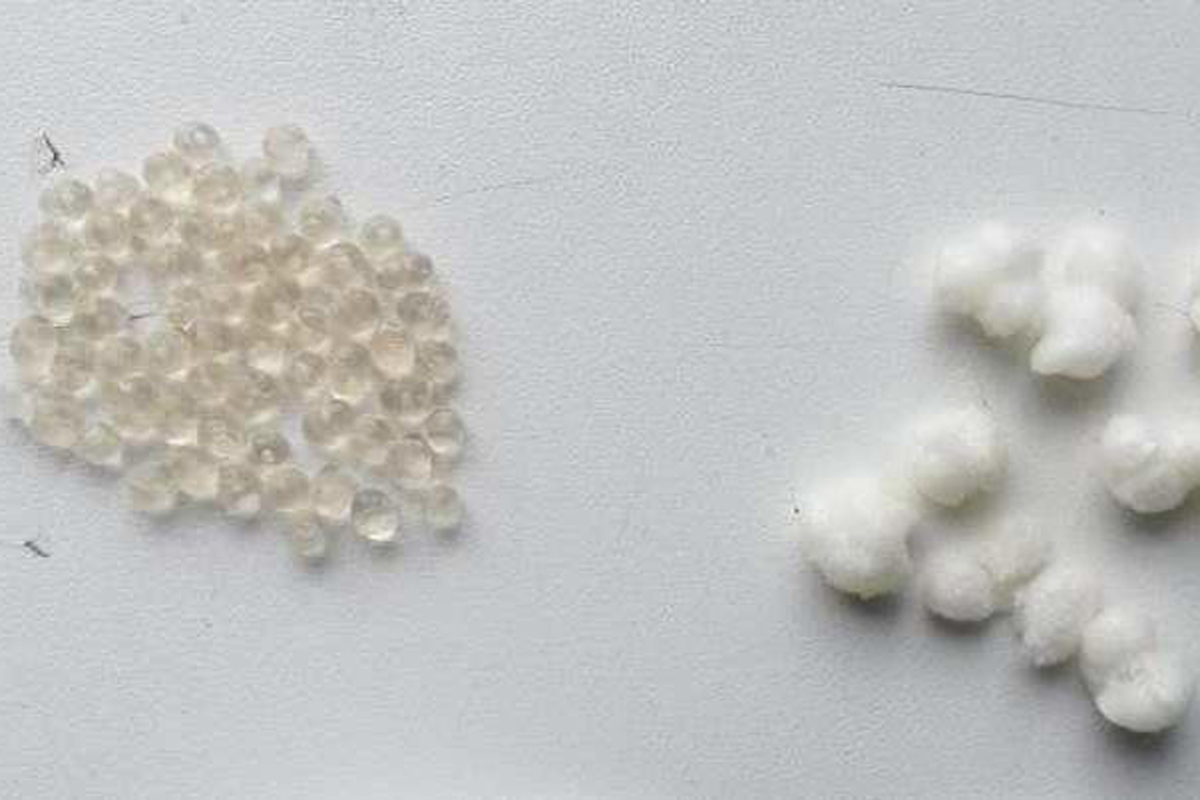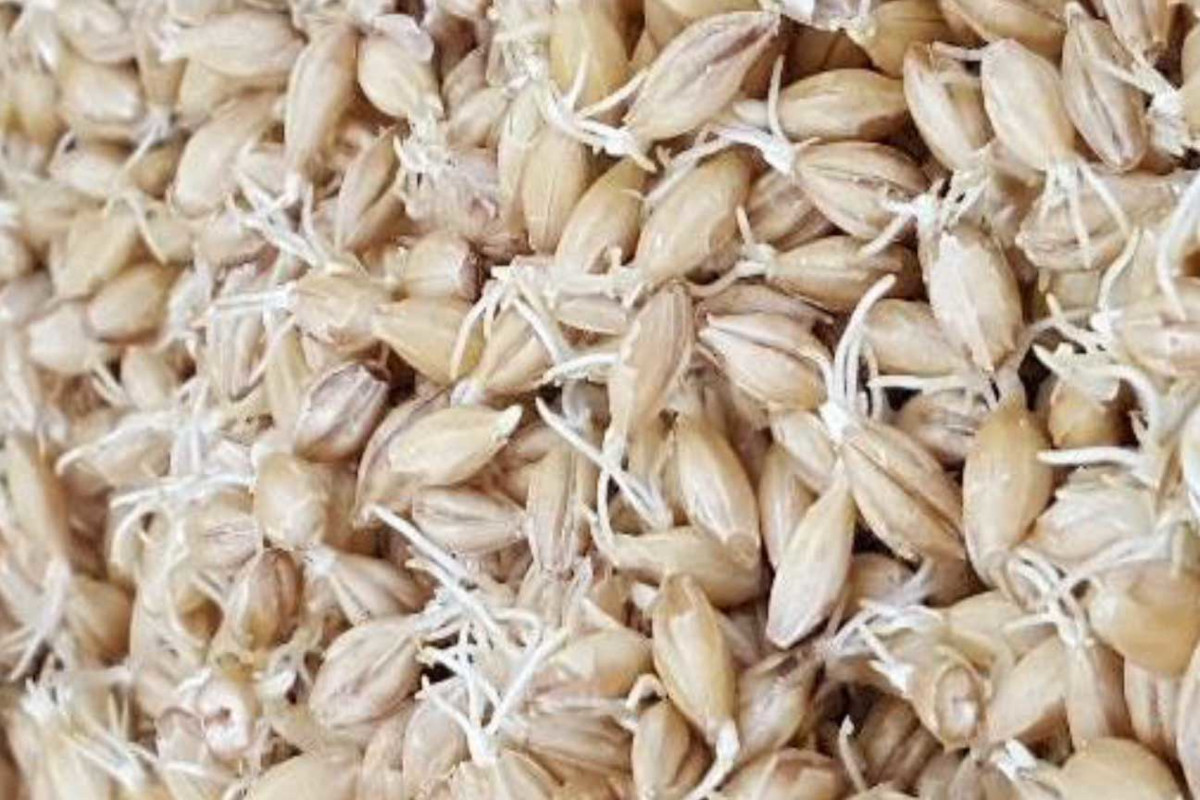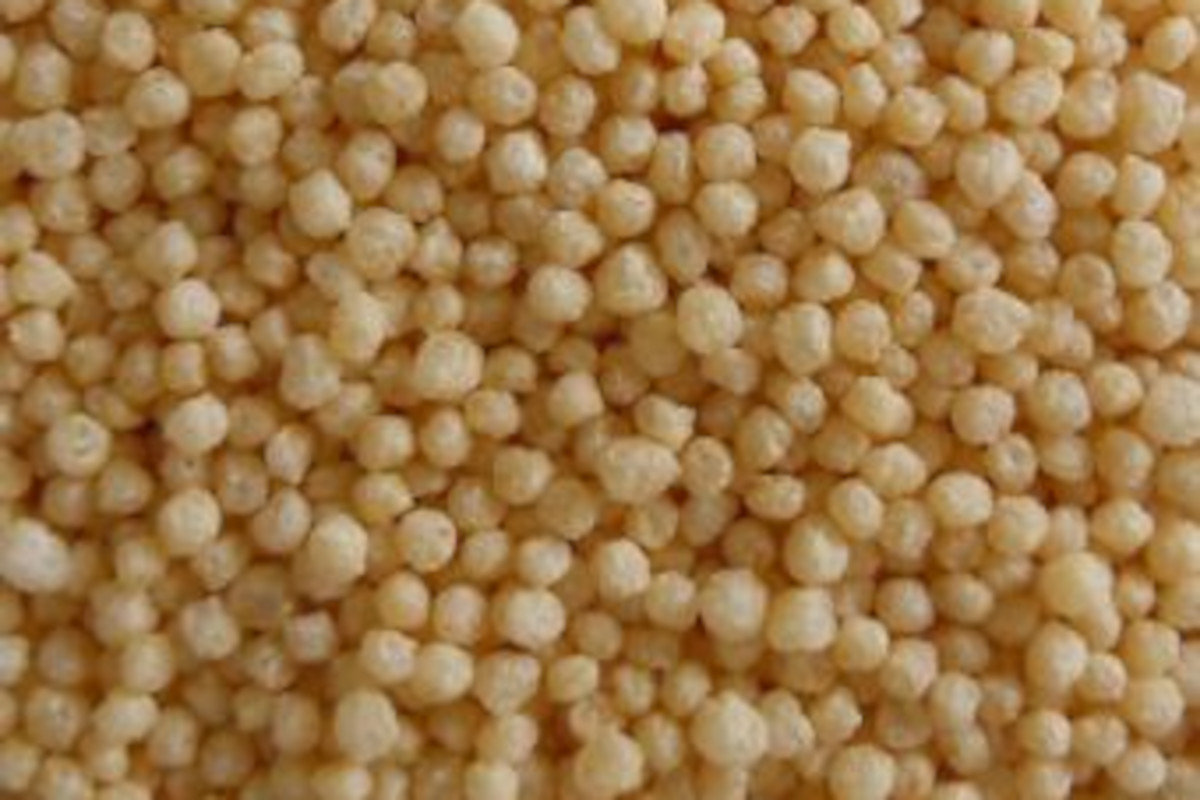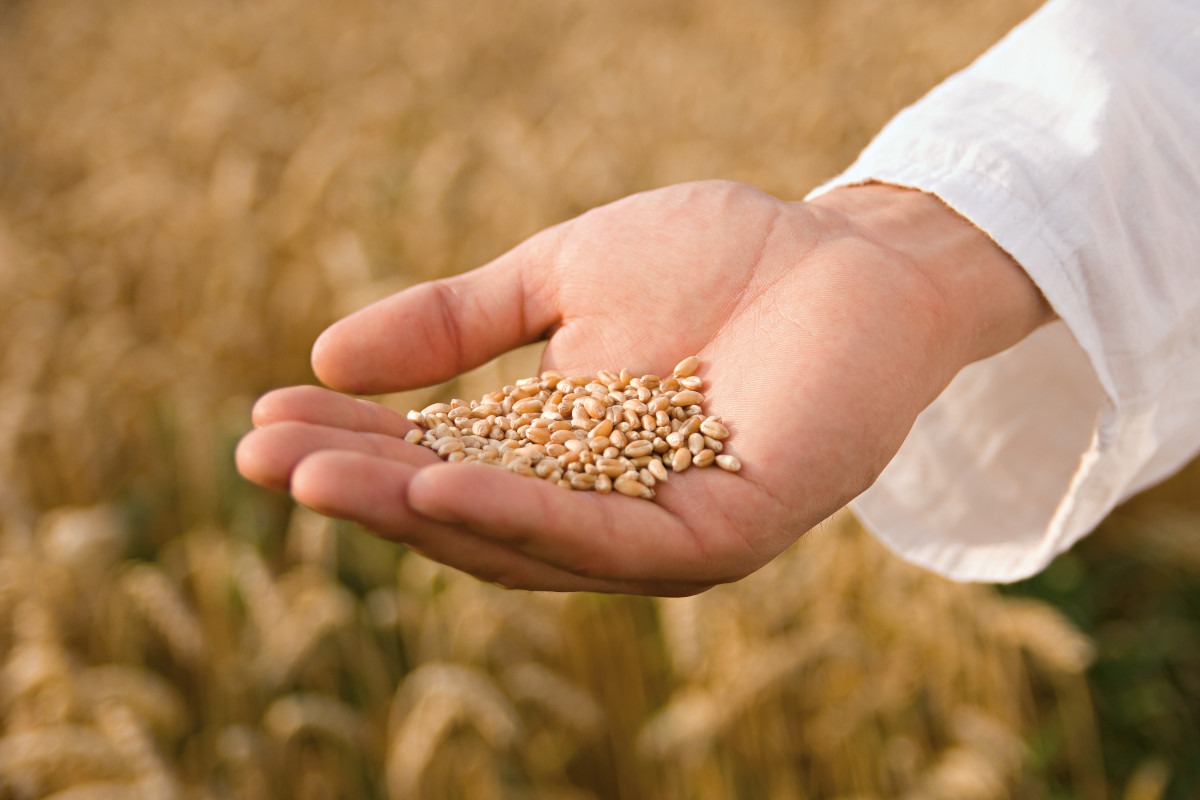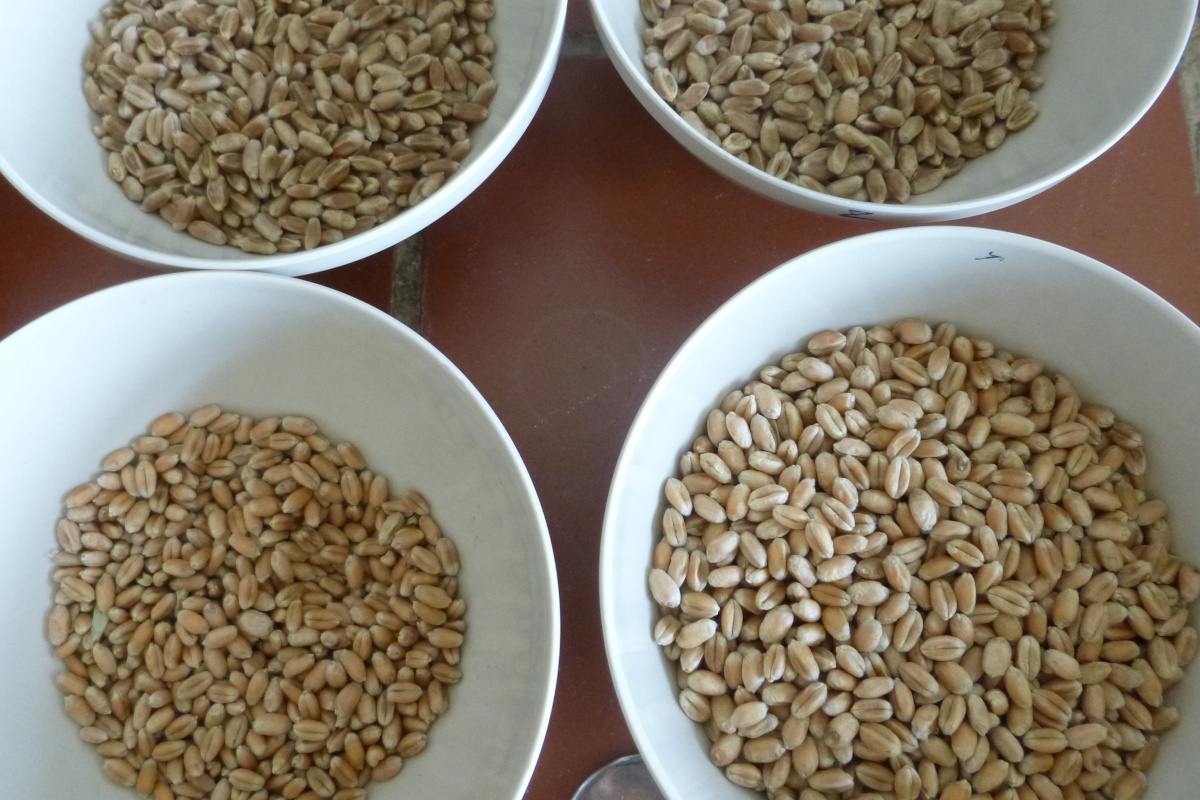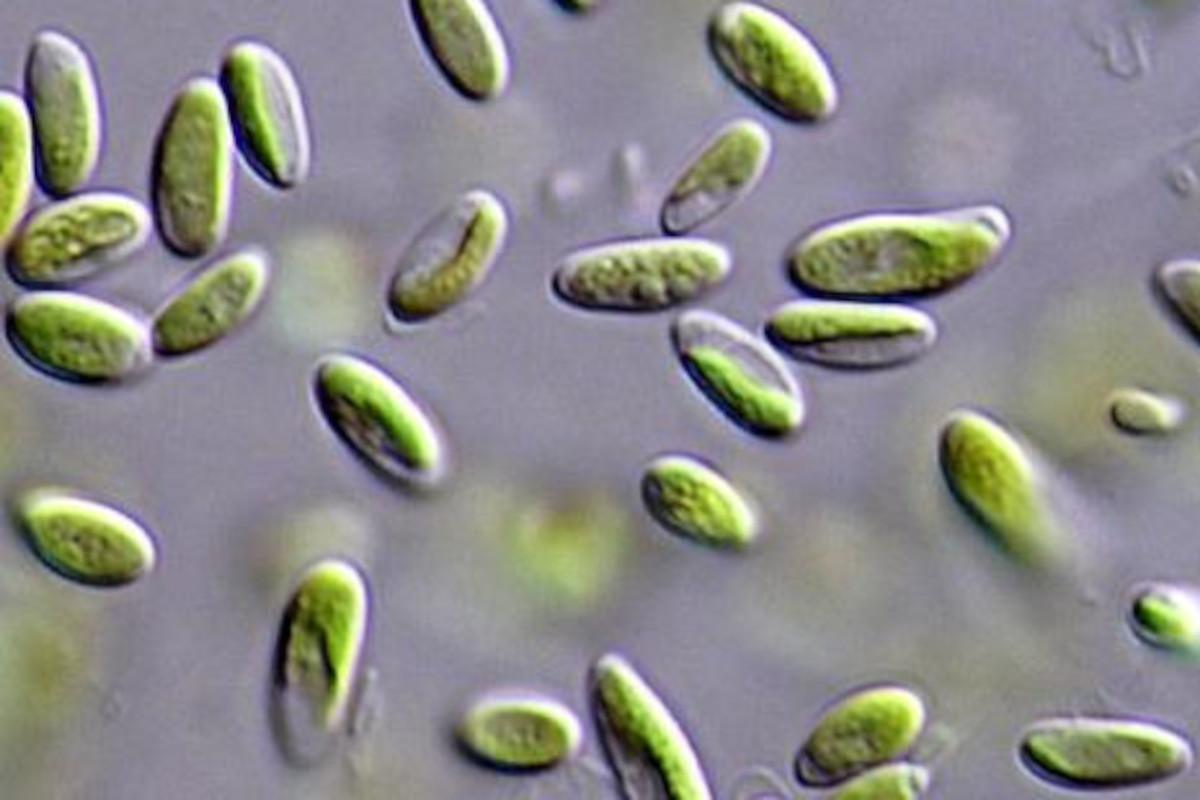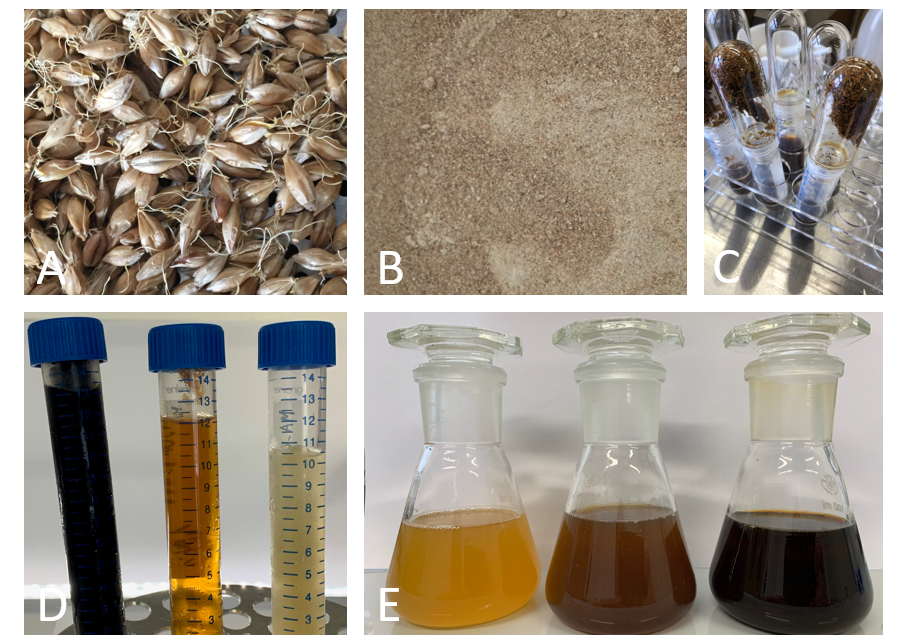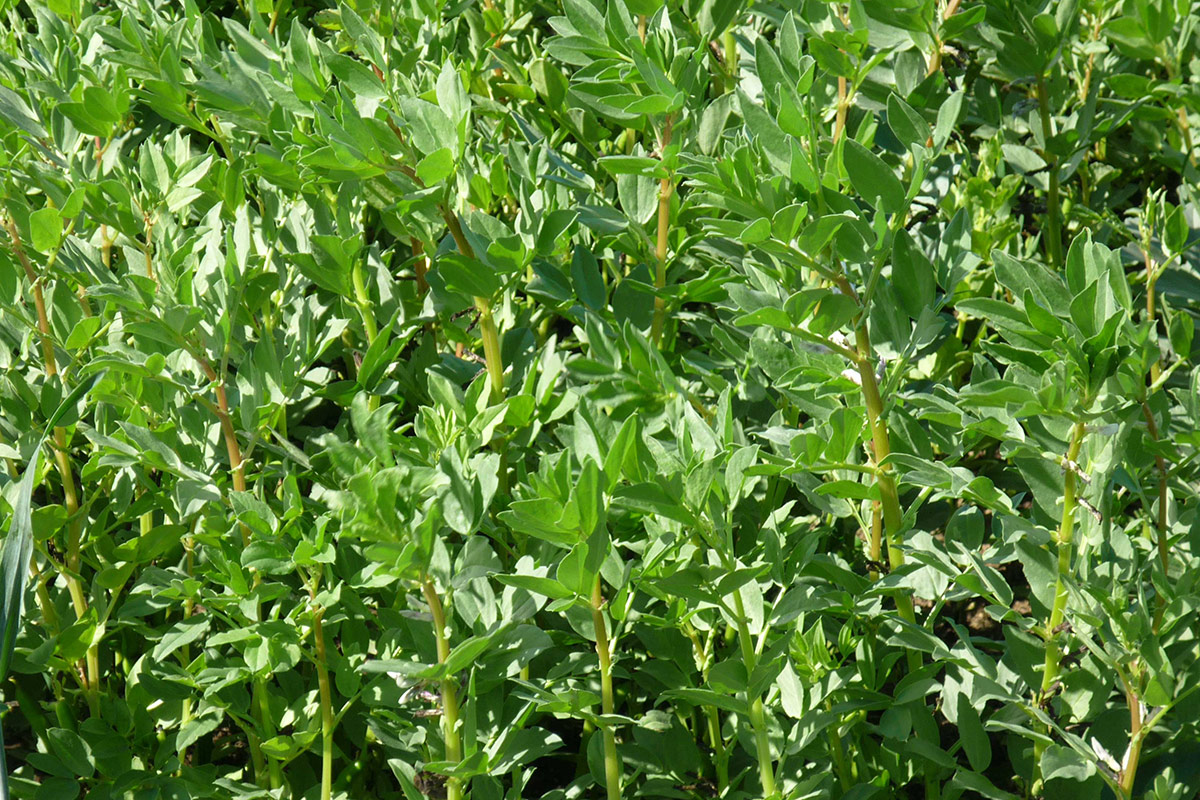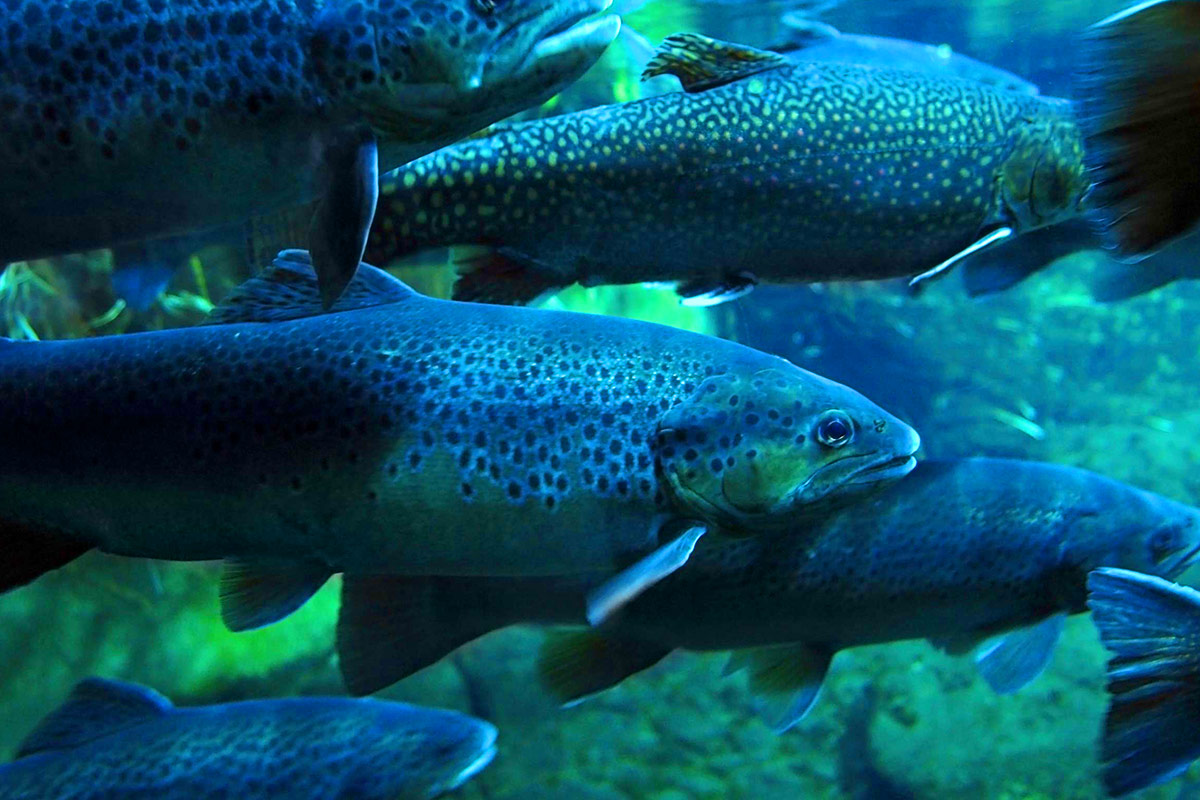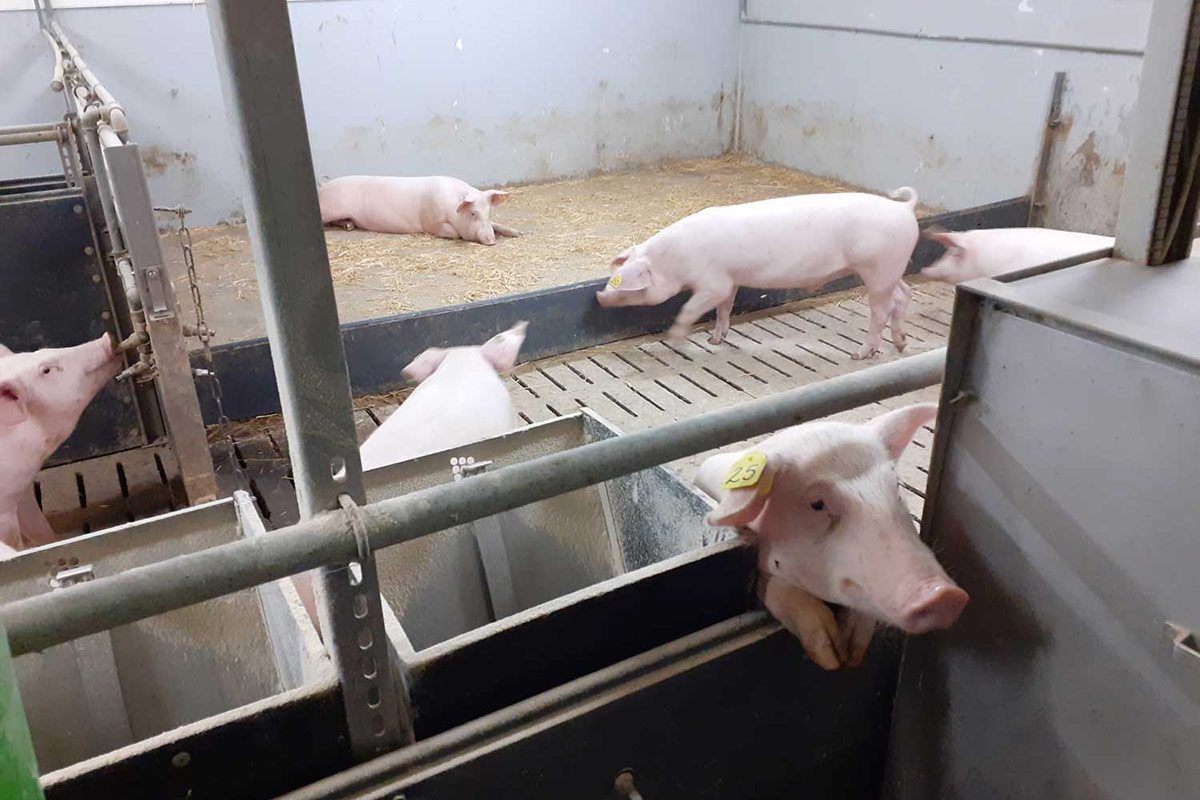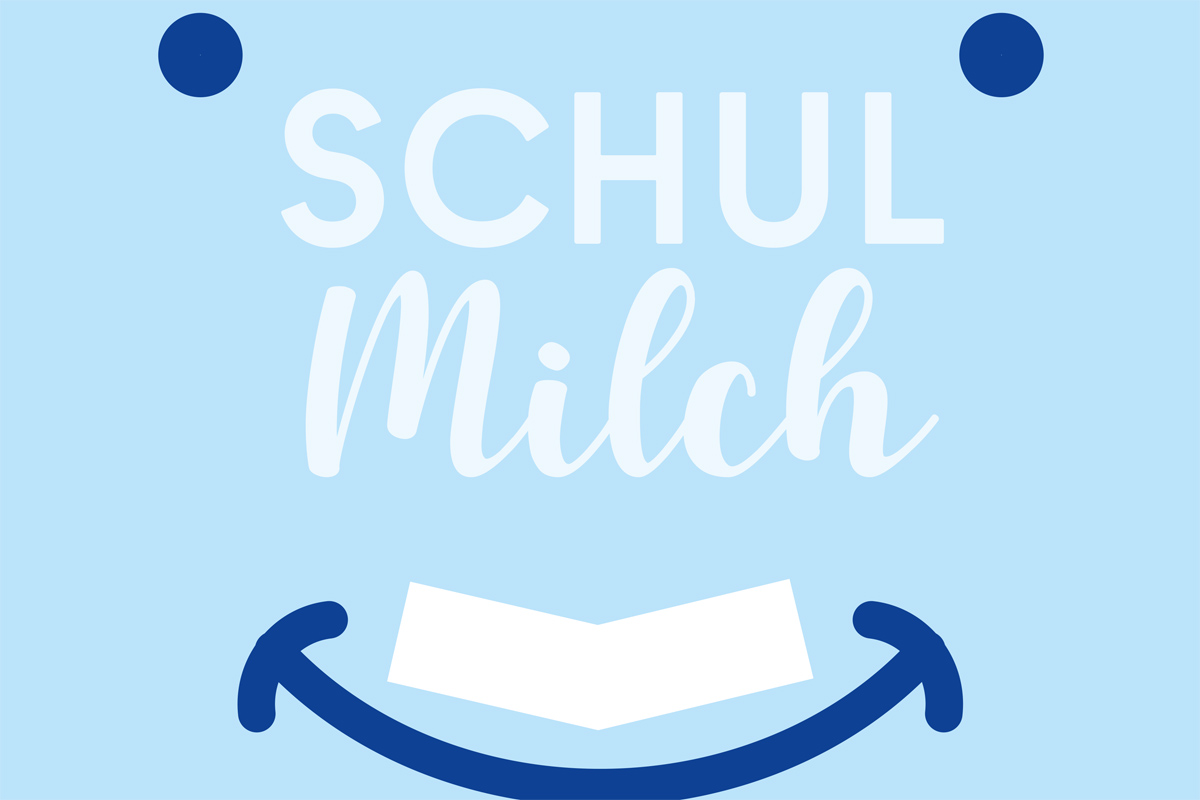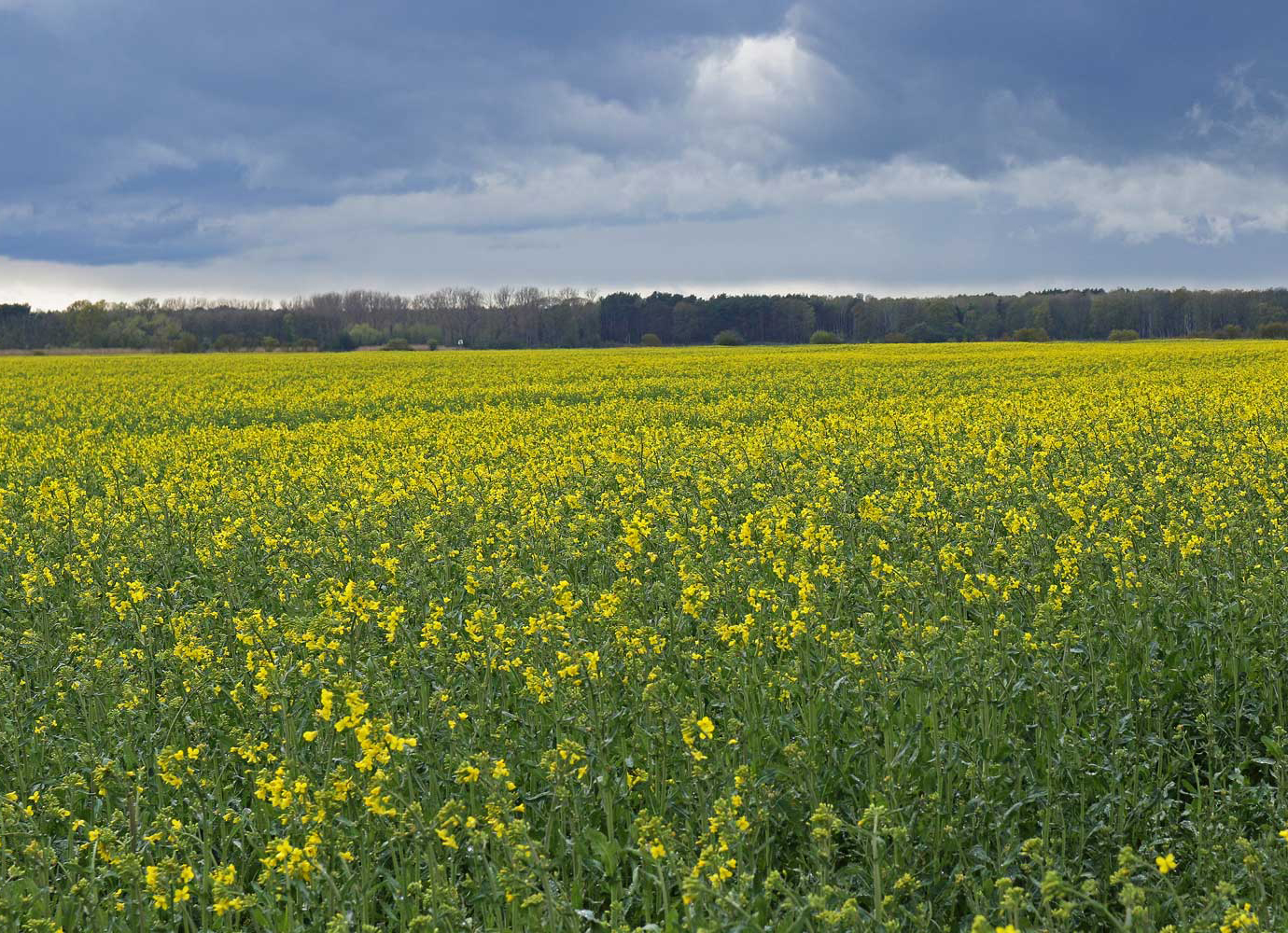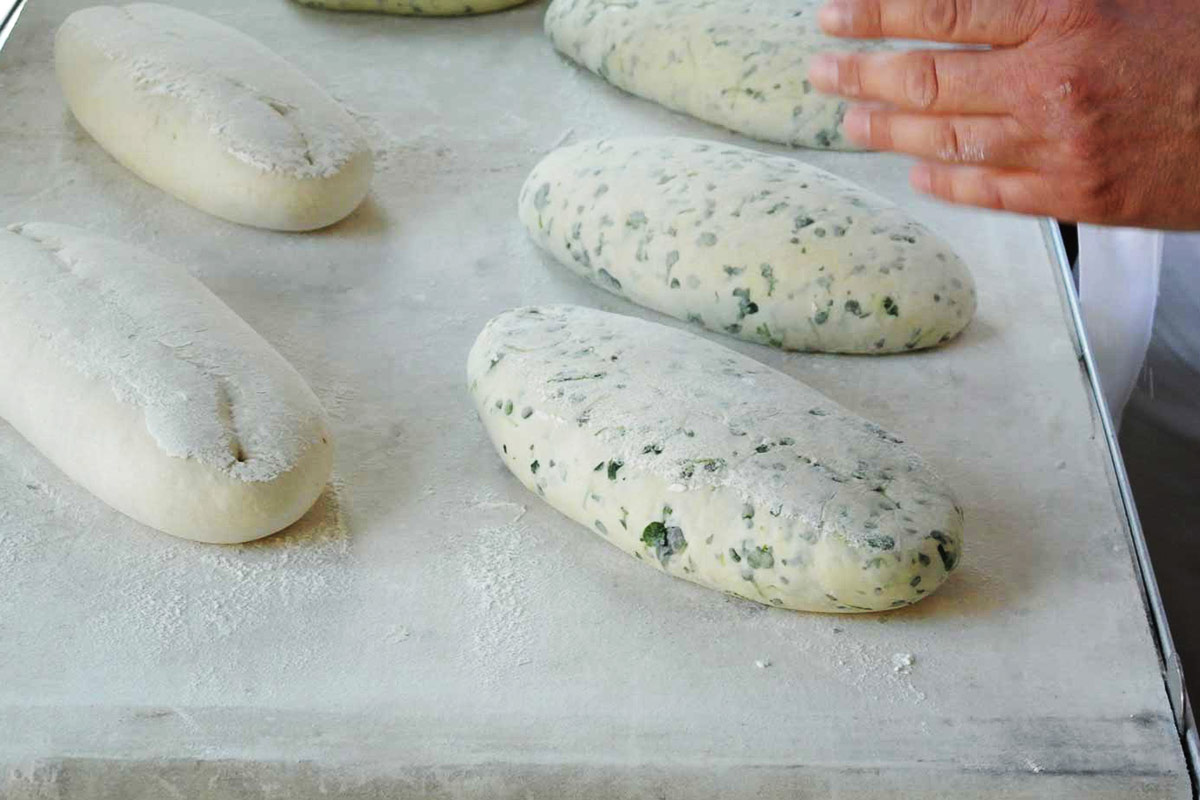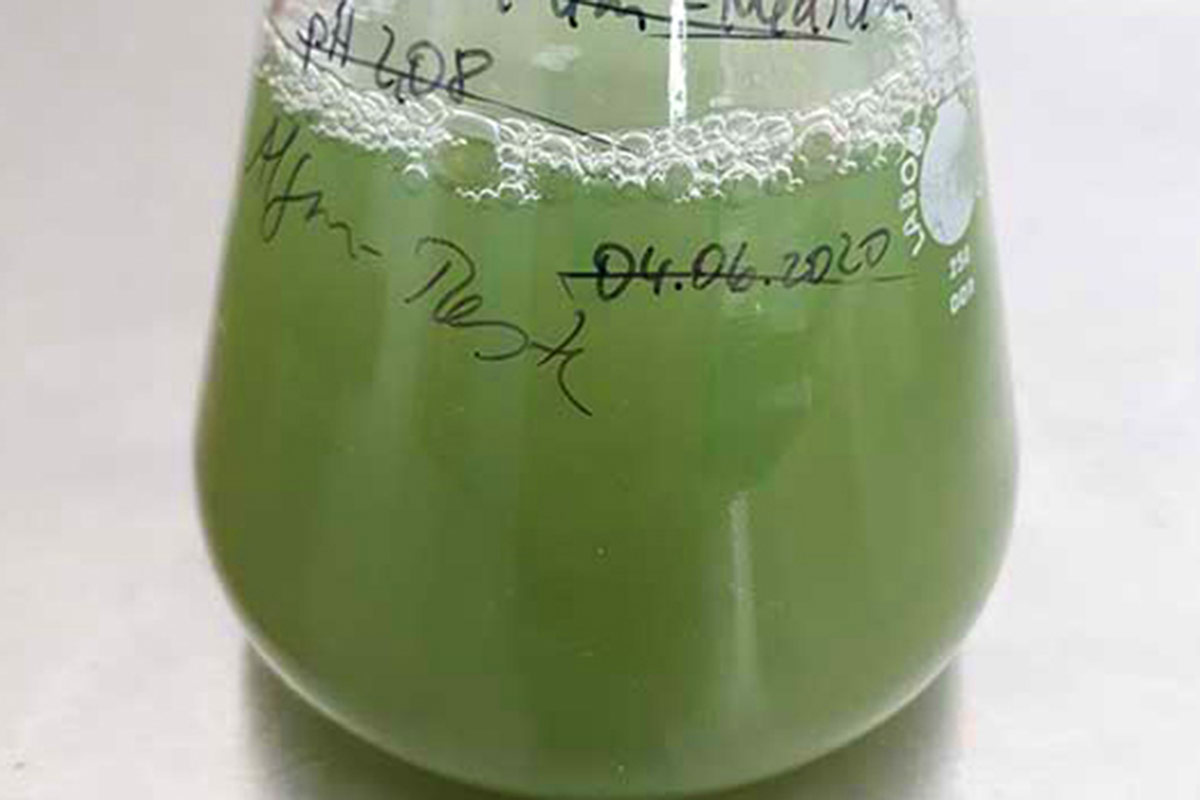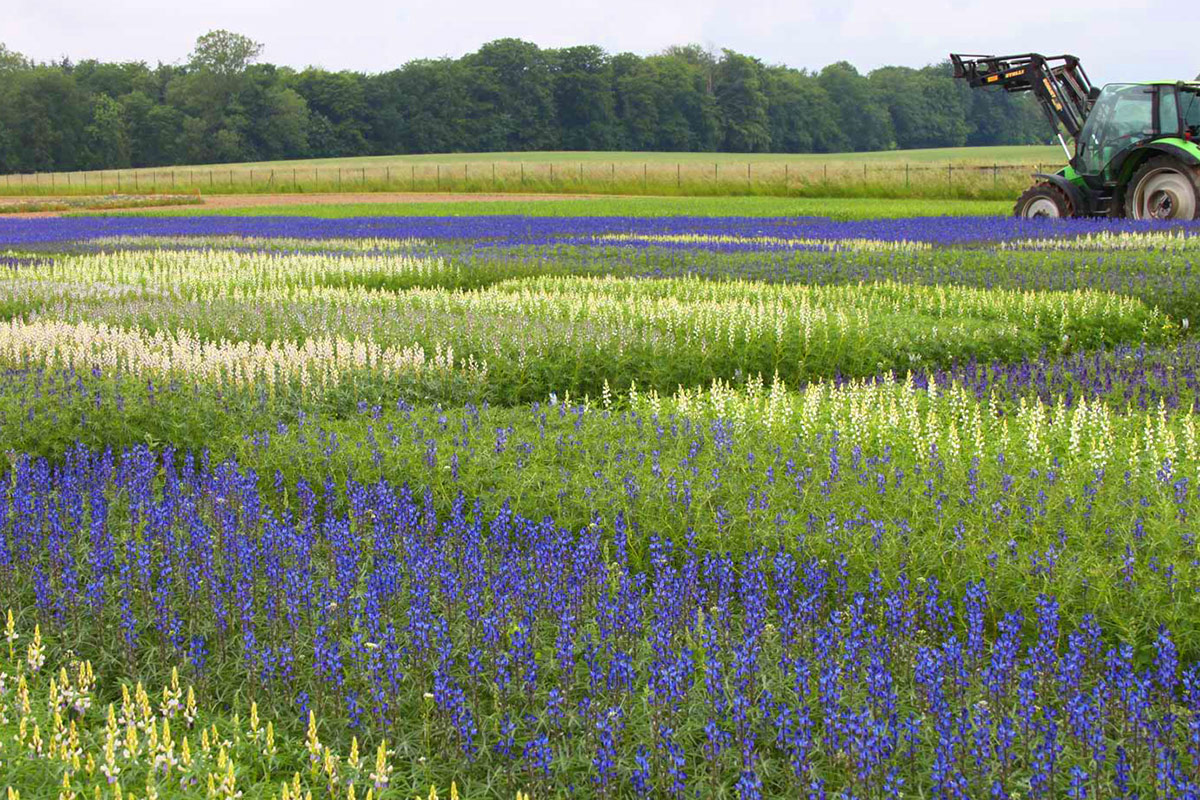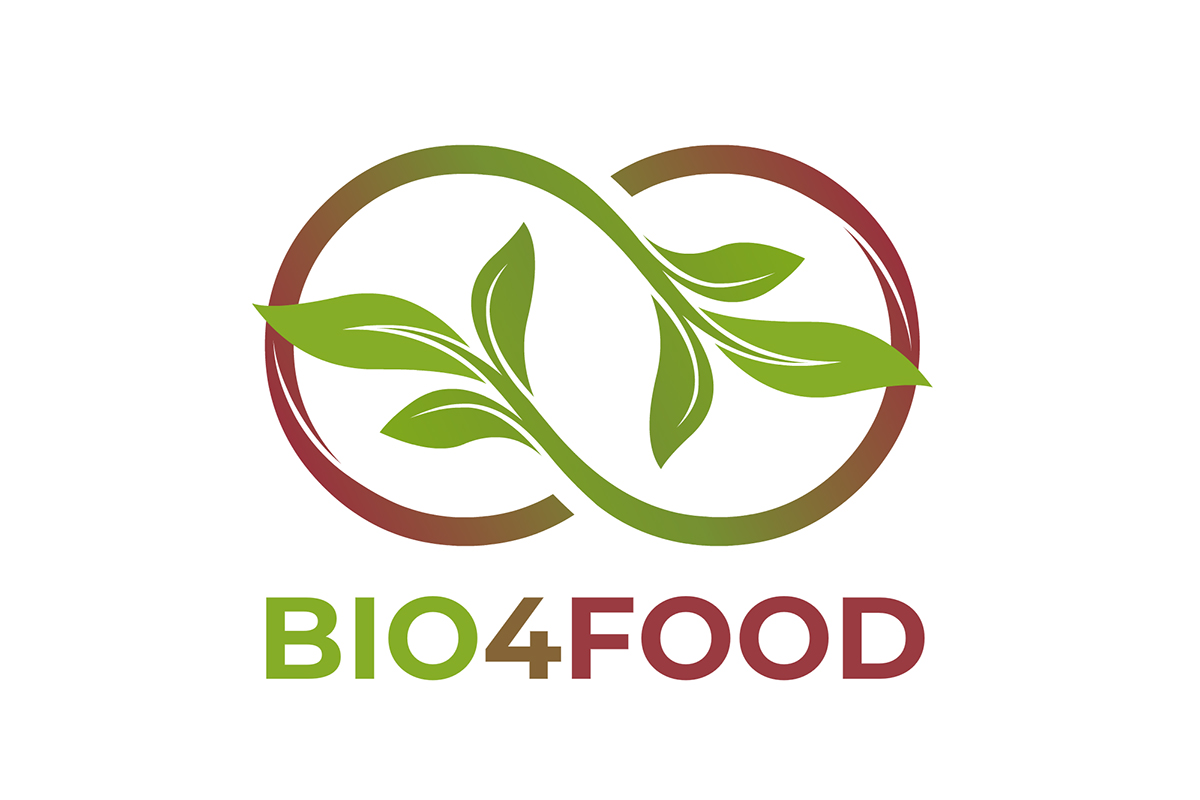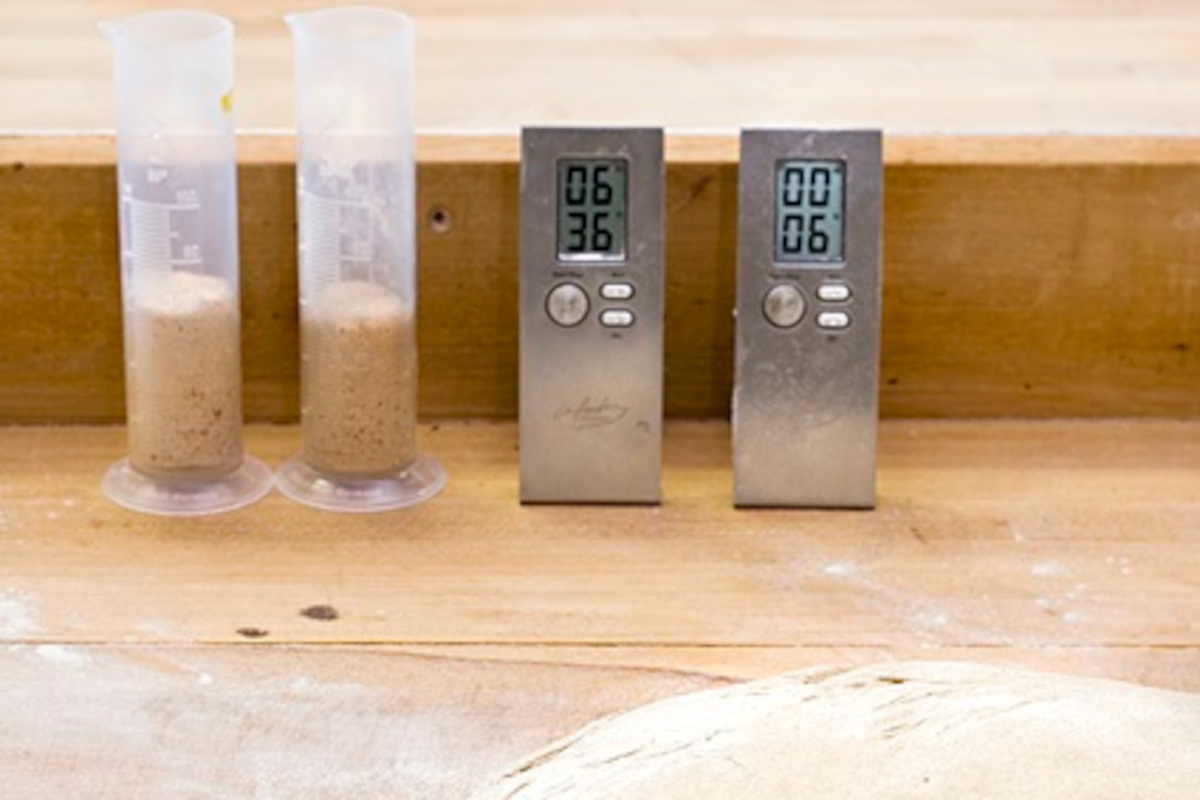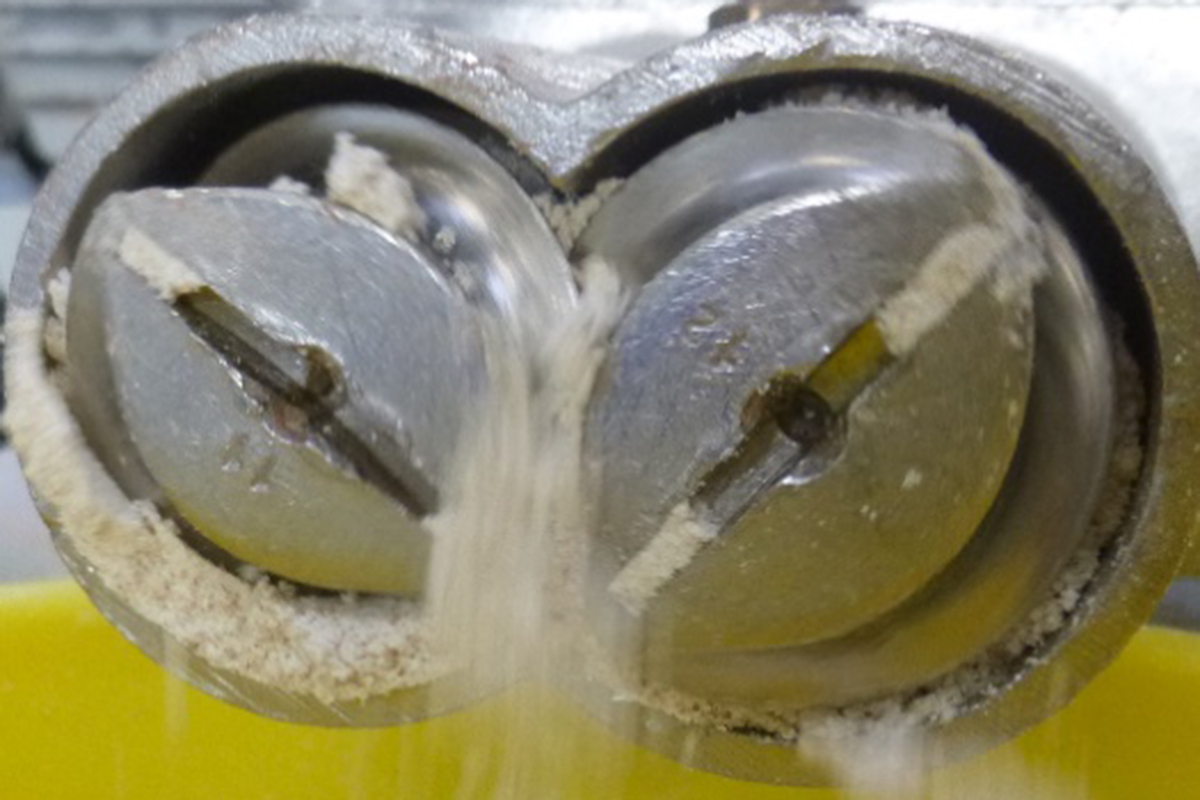Projects completed
Acrylamide is also produced during the baking of special products that are refined with vegetable ingredients, such as baked goods with potatoes or carrots. The aim of this research project is to develop a successful strategy to minimise acrylamide in such baked goods.
The new laboratory technology is used to advance scientific work on the protection of soil functions as well as investigations on water protection. In particular, the improvement of the protection of water bodies as well as the avoidance of pesticide inputs into surface waters are a major issue for the ILU.
Lebensmittelreste sind mehr als nur Kompost. Wie Algen daraus wertvolle chemische Rohstoffe schaffen können, will dieses Projekt herausfinden.
The quality of pea starch is subject to strong fluctuations, which lead to reduced product qualities. Reduced breeding contributed to the lack of optimisation with regard to important ingredients. Moreover, the main use of peas is almost exclusively in animal feed. This project aims to change that.
Aquacultures cause very high GHG emissions, with feed production accounting for 87 percent of GHG emissions. The CLIMAQUA project aims to implement an innovative aquaculture-based food system with reduced climate impact.
In this project, a network of small and medium-sized enterprises in traditional food production, scientific institutions and multipliers is supervised with the aim of driving innovation in the industry.
The preservation of the plane tree as an important urban tree is the aim of the project. The task is to develop and apply an innovative and sustainable non-chemical plant protection that targets S. platani, the causal agent of Massaria disease.
Grain is one of the most important foods of all. However, the starch in modern wheat varieties can lead to health problems. The ILU therefore looked for a way to influence the digestibility of starch.
The ILU focused on the higher-value utilisation of rapeseed by-products based on the development of processes with CO2 high-pressure extraction, with single- and twin-screw extruders and applications in the fields of cosmetics and animal feed.
Algae enable the sustainable production of numerous value-added ingredients, these ingredients are used in the food and feed industries. The aim of iAlgaePro is the interdisciplinary development of innovative algae processing within the entire value chain from raw material to product.
Industrially produced rye bread sometimes shows cracks after only a few days. In this project, the ILU wants to get to the bottom of this baking error called dry baking.
The aquaculture industry contributes with half of the global seafood consumption and this share is expected to increase. Limited availability of marine raw materials has created a need for new sustainable feed resources to cover the need for proteins and EPA/DHA to ensure the future growth.
The baking process is still the most energy-intensive and lossy process in the production of bakery products, despite numerous technical optimizations. The development of an energy-efficient baking process with a particular focus on the measurement of baking air humidity and subsequent data processing using "artificial neural networks" is intended to significantly optimize this process.
The aim is to develop a particle foam for the production of molded parts. Low material densities, good mechanical properties in terms of strength, elasticity and shock absorption, low abrasion and relative resistance to moisture are required.
Malt is a natural raw material which, based on its origin and the manufacturing process, does not require labeling when used as a flavoring agent or colorant in food. The aim is to improve malt as a flavoring agent and colorant, especially in baked goods and dairy beverages, so that it is available without enzymes due to enzymatic dry saccharification and has a higher sugar content than usual.
The aim of the research project is the efficient and market-oriented production of innovative foods and ingredients based on native legume species such as peas and field beans.
"HealthyMinorCereals" these are the forgotten ancient cereals with healthy ingredients. The HMC project aims to increase the cultivation and consumption of rye, oats, spelt, einkorn and emmer.
The research goal of the project is to determine process conditions and material properties that are suitable for producing extrudates with good sensory properties and storage stability. The relationships between ingredient content, quality and distribution of wheat and oats are to be compared.
Delaying skin aging is one of the most important concerns of the cosmetics industry. Consequently, there is a growing need for powerful anti-aging agents, especially to protect the skin from UV damage and light-induced skin aging. Within the scope of an extensive screening, promising microalgae strains were evaluated, which show protection of the skin against light-induced skin aging.
in the cosmetics industry, but also in the pharmaceutical industry, there is an increasing demand for innovative natural active ingredients with skin-lightening effects. The project aims to exploit the potential of malt and malt processing by-products to develop new high-performance active ingredients for the cosmetics industry.
This cooperation project of IGV GmbH, Früchteverarbeitung Sohra GmbH and ILU e. V. aims at a new use of the field bean. One possibility is to distil drinkable alcohol from it.
Rainbow trout and brook trout are among the most important domestic edible fish. In order to protect the animals from redmouth disease and furunculosis in aquacultures as well, the ILU and other partners developed fish feed pellets with an encapsulated vaccine. A prerequisite for the production of healthy food.
Many cyanobacteria are toxic. If they accumulate in drinking water or bathing lakes, humans may suffer headaches, vomiting and sometimes life-threatening symptoms. But under what circumstances do cyanobacteria multiply and form toxins? This is what scientists at the ILU wanted to find out.
Domestic by-products can also play a role in replacing soy as pig feed. This means short transport routes and closed material flows. And what could be more local than brewer's grains?
By-products from rapeseed oil extraction usually end up as animal feed in stables. Scientists at the ILU and TU Berlin want to get more out of it. In the end, rapeseed yoghurt products could soon be in the supermarket.
People in Europe are getting older and older. However, many eat too unhealthy. So to stay fit for a long time, a change in diet can help. To support this is the task of NutriAct: the ILU develops solid breads and snacks for this purpose.
Partners from ten European countries are working together on this project to promote the cultivation and utilisation of leguminous crops within the EU. The goal is to develop sustainable and competitive cultivation systems and value chains within the feed and food sector.
In the project, plant waste will be used for the production of extracts with biostimulant properties. This can help to promote the yield and quality of the plants and increase their content of minerals such as iron, magnesium and zinc
currenty, quality control in bakeries has been a less automated process in which samples are taken from production, measured manually and assessed. The detection system is designed to enable the acquisition, calculation and processing of technical-technological parameters for baked goods characterization and as a result for quality assurance.
Agro4Comp aims to identify new sources of natural fibers for use in polymer composite products. The focus will be on the use of agricultural by-products
